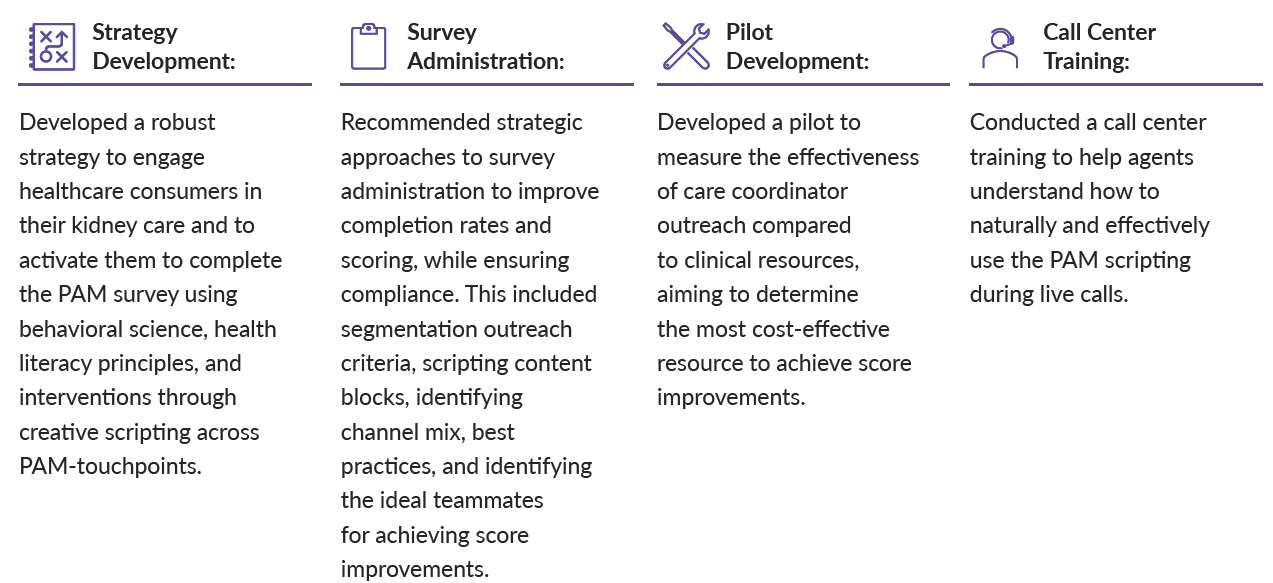Case Study
Empowering Healthcare Consumers in Managing Chronic Kidney Disease

At a Glance
- Optimized a national kidney care organization’s effort to activate healthcare consumers to complete the PAM (patient activation measure) survey. PAM is a measure of patient or member engagement in their own care and associated with higher engagement in treatment, greater healthcare consumer satisfaction, and improved health outcomes.
- Utilized behavioral science principles and confidence artifacts for scripting optimization.
- Trained customer service representatives (CSRs) to understand how to use the principles when speaking with members.
- Provided recommendations on channels, channel mix, and role assignments to achieve score improvement.
- Developed and deployed a pilot to measure effectiveness of motivational interviewing versus care coordinator PAM outreach.
- Aimed to improve individual PAM scores related to self-efficacy and confidence.
Business Opportunity
Our client sought to activate healthcare consumers living with chronic kidney disease (CKD) and end-stage kidney disease (ESKD) to engage in healthy behaviors related to the Patient Activation Measure and increase healthcare consumers’ likelihood of taking and completing the survey.
With CMS promoting improvements in healthcare consumer activation as a quality measure for risk-based kidney disease management programs, there is significant financial incentive to enhance healthcare consumer confidence and empowerment in care management.
Engagys Solutions

Deliverables
- Segmented outreach strategy based on a healthcare consumer’s previously documented activation level
- Multi-channel campaign design
- Customized messaging using behavioral science and health literacy principles
- Call center training
- Pilot launch with an A/B test
Results

- Improved overall healthcare consumer engagement and confidence in condition management
- Decreased program administration costs by identifying and training less costly agents, (non-clinical CSRs versus clinical resources using motivational
interviewing)


